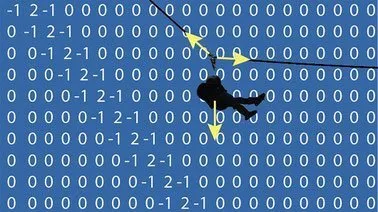
Differential Equations: Linear Algebra and NxN Systems of Differential Equations 
This course covers the fundamentals of linear algebra and systems of differential equations. It explores how to model phenomena using systems of interacting differential equations, and how to solve them using linear algebra. Students will gain an understanding of the mathematical language used to describe the world around us. ▼
ADVERTISEMENT
Course Feature
![]() Cost:
Cost:
Free
![]() Provider:
Provider:
Edx
![]() Certificate:
Certificate:
No Information
![]() Language:
Language:
English
![]() Start Date:
Start Date:
Self paced
Course Overview
❗The content presented here is sourced directly from Edx platform. For comprehensive course details, including enrollment information, simply click on the 'Go to class' link on our website.
Updated in [March 06th, 2023]
This course, Differential Equations: Linear Algebra and NxN Systems of Differential Equations, provides an introduction to the use of linear algebra to solve systems of more than two differential equations. Students will learn how to use MATLAB to assist in solving these systems. The course will cover topics such as the original page ranking systems used by Google, balancing chemical reaction equations, tuned mass dampers and other coupled oscillators, three or more species competing for resources in an ecosystem, and the trajectory of a rider on a zipline. This course is part of the Differential EquationsXSeries Program offered on edX.
[Applications]
Upon completion of this course, students will be able to apply their knowledge of linear algebra and systems of differential equations to a variety of real-world problems. These problems may include the original page ranking systems used by Google, balancing chemical reaction equations, tuned mass dampers and other coupled oscillators, three or more species competing for resources in an ecosystem, and the trajectory of a rider on a zipline. Additionally, students may choose to enroll in the Differential Equations XSeries Program offered on edX to further their knowledge and understanding of differential equations.
[Career Paths]
1. Data Scientist: Data Scientists use mathematics, statistics, and computer science to analyze large datasets and uncover patterns and trends. They use this information to develop predictive models and algorithms that can be used to make decisions and solve problems. Data Scientists are in high demand in many industries, and the demand is only increasing as more and more data is collected and analyzed.
2. Machine Learning Engineer: Machine Learning Engineers use algorithms and techniques from artificial intelligence and machine learning to develop systems that can learn from data and make decisions without explicit programming. They are responsible for designing, developing, and deploying machine learning models and systems. This is a rapidly growing field, and Machine Learning Engineers are in high demand in many industries.
3. Robotics Engineer: Robotics Engineers design, build, and program robots to perform specific tasks. They use mathematics, physics, and computer science to develop robots that can interact with their environment and complete complex tasks. Robotics Engineers are in high demand in many industries, and the demand is only increasing as robots become more and more advanced.
4. Control Systems Engineer: Control Systems Engineers use mathematics, physics, and computer science to design and develop systems that can control and monitor physical processes. They use differential equations and linear algebra to develop models of physical systems and design controllers that can regulate the behavior of these systems. Control Systems Engineers are in high demand in many industries, and the demand is only increasing as more and more systems are automated.
[Education Paths]
1. Bachelor of Science in Mathematics: This degree program focuses on the fundamentals of mathematics, including calculus, linear algebra, and differential equations. Students will learn how to apply these concepts to solve real-world problems. The degree also covers topics such as probability, statistics, and numerical analysis. Developing trends in this field include the use of machine learning and artificial intelligence to solve complex mathematical problems.
2. Master of Science in Applied Mathematics: This degree program focuses on the application of mathematics to solve problems in various fields, such as engineering, physics, and economics. Students will learn how to use mathematical models to analyze data and develop solutions. Developing trends in this field include the use of big data and data science to solve complex problems.
3. Doctor of Philosophy in Mathematics: This degree program focuses on advanced topics in mathematics, such as algebra, geometry, and topology. Students will learn how to use mathematical theories to solve complex problems. Developing trends in this field include the use of mathematical modeling to solve problems in fields such as finance, medicine, and engineering.
4. Master of Science in Computational Mathematics: This degree program focuses on the use of computers to solve mathematical problems. Students will learn how to use computer algorithms to solve complex problems. Developing trends in this field include the use of artificial intelligence and machine learning to solve complex problems.
Course Provider

Provider Edx's Stats at AZClass
Discussion and Reviews
0.0 (Based on 0 reviews)
Explore Similar Online Courses

Ethical Hacking - Capture the Flag Walkthroughs - v2

The Advanced Forex Course for Smart Traders

Python for Informatics: Exploring Information

Social Network Analysis

Introduction to Systematic Review and Meta-Analysis

The Analytics Edge

DCO042 - Python For Informatics

Causal Diagrams: Draw Your Assumptions Before Your Conclusions

Whole genome sequencing of bacterial genomes - tools and applications

Linear Algebra: Help & Tutorials

Eigenvectors and Eigenvalues


Start your review of Differential Equations: Linear Algebra and NxN Systems of Differential Equations